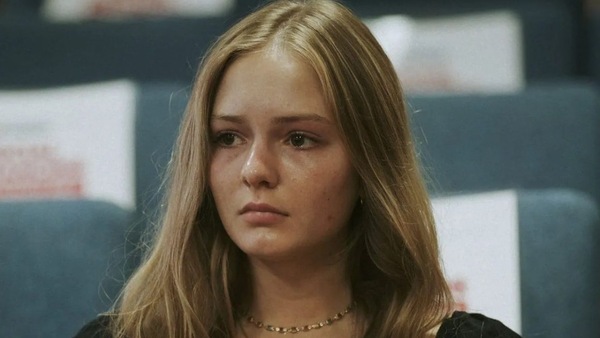Take Care of Maya review: When seeking treatment for a child ends in tragedy for a family
The Netflix documentary follows one family’s battle against the US healthcare and child protection service that mistook efforts to treat an ill child as abuse and tore them apart

Last Updated: 01.10 PM, Jun 25, 2023
Story: When young Maya Kowalski is brought into the Johns Hopkins All Children’s Hospital, with a demand from the parents, especially her mother Beata, a registered nurse practitioner, that she be administered ketamine to help with her symptoms, they refuse that form of treatment. The doctors also suspect that the child’s supposed earlier Complex Regional Pain Syndrome diagnosis, for which she has had ketamine in the past, is all in her head and that the best-case scenario was Munchhausen by Proxy, whereby Beata was making her daughter sick.
Within days, Maya became a ward of the state, Beata disallowed from seeing her daughter, literally tearing the Kowalski family apart. The problem, as far as Johns Hopkins was concerned, was that Beata was pushy and insisted that they listen to her and give Maya the prescribed treatment. It didn’t help that the physician who’d treated her earlier vouched for the fact that the child was suffering from the debilitating condition. When it then became crystal clear to Beata that as long as she was around, they’d never get to see Maya again, she took a painfully drastic step. Years later, the Kowalski family is still fighting a difficult legal battle against the hospital.
Review: As a parent, the only scenario that would come to mind when a child is in some form of discomfort is to move heaven and earth and get him/her out of that zone and provide relief as best as possible. In the case of the Kowalski family, that’s exactly what they also tried to do when their young daughter Maya began exhibiting difficult to diagnose symptoms of extreme pain that impaired her muscle movement to such an extent that she needed a wheelchair. The family finally got a diagnosis from Dr Anthony Kirkpatrick, whose ketamine treatment seemed to work for the little girl. They’d even taken her to Mexico for an experimental ketamine coma course of treatment as per his suggestion, which was brutal, but at the end of which Maya’s condition remained in remission for several months.
It's when a sudden flare-up requires a trip to the emergency ward of the Johns Hopkins that things go topsy-turvy for the Kowalski family. It is not uncommon for medical practitioners to disregard previous diagnosis or treatment, so when Beata Kowalski called in specific instructions about a potentially harmful drug to be administered to Maya to the medical staff it supposedly rang alarm bells, prompting them to make their own medical conclusions and put the child’s ‘safety’ ahead of her alleged health issues.
Take Care of Maya, by director Henry Roosevelt, chronicles Maya Kowalski’s symptoms, initial diagnosis, the experimental ketamine treatment and eventual trip to Johns Hopkins, which resulted in her being held captive at the hospital for three months, while also being barred from seeing her parents, particularly, her mother Beata. The experience had a devastatingly tragic effect on the family, when Beata realizes that bringing Maya back home would happen only if she is not in the picture and she takes her life. The documentary also focuses on the Kowalski family’s ongoing fight for justice, which can be frustrating to watch, with the hospital’s very powerful legal team doing their best to avoid a trial.
As a viewer outside of the US, what’s also striking is the approach of the Child Protection Service that determines within 10 minutes of seeing Maya that medical abuse is at play and that her symptoms are all in her head, which Roosevelt depicts with visuals of her during her stay at the hospital, without ketamine and seemingly thriving. It’s not definitive if Maya really does have a chronic pain syndrome, given that she’s now living as normal a teenager’s life as possible. Was Beata the one with a mental issue that ended in her taking her life? Or was she just frustrated at how her pushy behaviour was being misconstrued and she saw suicide as the best way out for her daughter? That remains a mystery, but such outcomes are, nevertheless, sad.
Verdict: Take care of Maya does make the heart ache for the Kowalski family’s tragedy and the injustice meted out to them. The fact that their legal battle is still ongoing also does not provide much solace. It’s a hard reminder that the hands that are meant to care can do more harm than good – but was it Beata Kowalski or is Johns Hopkins to blame? We may never really know.

 Premium
Premium